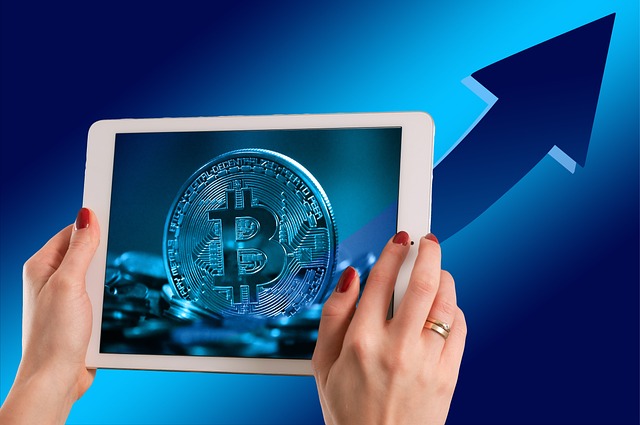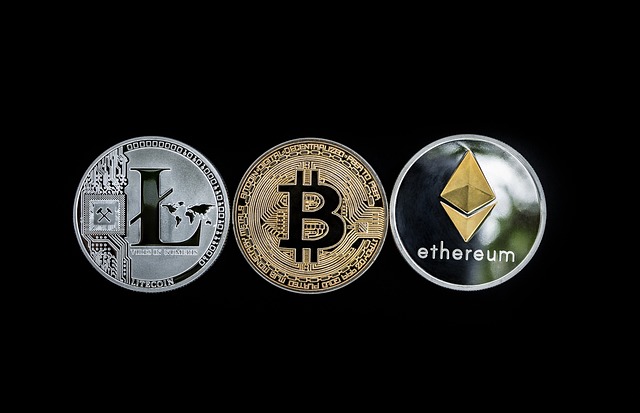Reaping the Rewards: The Advantages of Embracing DeFi
Reaping the Rewards: The Advantages of Embracing DeFi

Understanding the DeFi Revolution: A Beginner’s Guide
Decentralized Finance (DeFi) has emerged as a powerful force in the financial industry, promising to revolutionize the way we handle money and access financial services.

One of the key principles of DeFi is decentralization, which means that power and control are distributed among the participants in the network rather than being concentrated in the hands of a few institutions. This shift towards decentralization has the potential to transform the financial landscape by eliminating the need for trust in centralized authorities. Instead, trust is placed in the security and transparency of the blockchain technology that underlies DeFi. This not only opens up exciting new opportunities for individuals but also challenges the existing financial system by offering a more inclusive and accessible alternative.
The Power of Decentralization: How DeFi is Changing the Game
Decentralization is the buzzword that has taken the financial world by storm. In the traditional financial system, power and control reside with centralized entities like banks and governments. However, with the emergence of Decentralized Finance (DeFi), the game is changing. DeFi leverages blockchain technology to build financial applications that are open, accessible, and transparent to all.
One of the key ways DeFi is transforming the financial landscape is by removing the need for intermediaries. In traditional financial transactions, intermediaries like banks and payment processors act as gatekeepers, handling the transfer of funds and validating transactions. This reliance on middlemen often leads to delays, high costs, and limited access for those in underserved communities. With DeFi, the power shifts back to individuals, as transactions can be executed directly between participants on the blockchain.

Enhanced Financial Accessibility: Breaking Down Barriers with DeFi
Decentralized Finance, also known as DeFi, is transforming the world of finance by making it more accessible to everyone. Traditional financial systems have long been plagued with barriers that prevent individuals from participating fully in the economy. However, with the emergence of DeFi, these barriers are slowly being broken down.
One of the main obstacles to financial accessibility is the reliance on traditional banking systems. Many individuals, especially in developing countries, are unbanked and have limited access to financial services. DeFi eliminates this problem by providing individuals with the ability to participate in financial activities without the need for a centralized intermediary. Through DeFi platforms, anyone with an internet connection and a smartphone can access a range of financial services, including loans, investments, and savings, leveling the playing field for millions around the world.
Moreover, DeFi also addresses issues such as high transaction fees and lengthy processing times that are commonly associated with traditional financial systems. By leveraging blockchain technology and smart contracts, DeFi enables fast and low-cost transactions, making it more affordable for individuals to engage in financial activities. This is particularly significant for cross-border transactions and remittances, as DeFi allows for seamless transfers of value across borders, without the need for costly intermediaries.
In conclusion, DeFi is a game-changer when it comes to enhancing financial accessibility. By eliminating the need for traditional banks and reducing transaction costs, DeFi is breaking down barriers and empowering individuals to take control of their financial lives. With its potential to revolutionize the way we think about finance, DeFi holds the key to a more inclusive and sustainable economy for all.
Unleashing the Potential of Smart Contracts in DeFi
Smart contracts have emerged as a game-changer in the decentralized finance (DeFi) space, enabling a whole new world of possibilities. With their ability to self-execute and self-enforce, smart contracts eliminate the need for intermediaries, such as banks or lawyers, when conducting financial transactions. This opens up a world of opportunities for individuals and businesses to engage in peer-to-peer transactions with reduced costs and increased efficiency. By leveraging the power of blockchain technology, smart contracts not only automate processes but also ensure that transactions are executed in a secure and transparent manner.
The potential of smart contracts in DeFi extends beyond simple transactions. These programmable contracts can be utilized to create complex financial products, such as decentralized lending and borrowing platforms, decentralized exchanges, and even prediction markets. Through these innovative applications, individuals can access financial services that were previously inaccessible or limited to traditional financial institutions. Additionally, smart contracts enable the creation of decentralized autonomous organizations (DAOs), where decision-making is democratized and stakeholders have a direct say in the operation and governance of these organizations. This promotes greater inclusivity and decentralization in the financial system, empowering individuals to take control of their own financial destiny.
Empowering Individuals: The Benefits of Peer-to-Peer Lending in DeFi
Peer-to-peer lending, also known as P2P lending, is one of the key pillars in the decentralized finance (DeFi) ecosystem, offering numerous benefits to individuals seeking financial empowerment. Unlike traditional lending systems that require intermediaries like banks, P2P lending allows borrowers and lenders to connect directly on decentralized platforms powered by smart contracts. This direct interaction enables individuals to access loans or invest their funds more efficiently, removing the need for a middleman and reducing associated costs.
One of the standout advantages of P2P lending in DeFi is the increased accessibility it offers to individuals who may have previously faced barriers to obtaining loans. Traditional financial institutions often have strict requirements, making it difficult for individuals with limited credit history or lower incomes to secure loans. However, DeFi’s P2P lending platforms operate on a trustless model, leveraging smart contracts to assess creditworthiness based on transparent and immutable data. This means that anyone with collateral or a digital identity can participate in P2P lending, expanding opportunities for financial inclusion and empowering individuals to leverage their assets and build creditworthiness.
Unbanked No More: Exploring DeFi’s Impact on Financial Inclusion
Access to financial services has long been a challenge for the unbanked population, those individuals who lack access to traditional banking systems. This exclusion from formal financial services has left a significant portion of the global population without the means to save money, make payments, or participate in the economic growth of their communities. However, the emergence of decentralized finance, or DeFi, is changing this narrative, offering new opportunities for financial inclusion and empowerment.
DeFi is built on blockchain technology, which enables the creation of decentralized applications (dApps) that provide financial services without the need for intermediaries or centralized authorities. This decentralized nature of DeFi allows individuals to gain access to financial services directly through their smartphones or computers, bypassing the traditional banking system. By leveraging smart contracts, DeFi platforms facilitate transactions, lending, borrowing, and other financial activities in a transparent and secure manner. This technology empowers the unbanked by providing them with opportunities to participate in the global economy and improve their financial well-being.
Seamless Cross-Border Transactions: How DeFi is Revolutionizing Remittances
With the rise of Decentralized Finance (DeFi), the process of sending and receiving cross-border remittances is undergoing a major transformation. Traditionally, remittances have been laden with numerous intermediaries, bureaucratic processes, and high fees, making them slow, expensive, and inefficient. However, DeFi is changing this landscape by introducing a decentralized and peer-to-peer framework.
One of the main advantages of DeFi for cross-border transactions lies in its ability to remove intermediaries from the equation. Instead of relying on banks or other financial institutions to facilitate remittances, individuals can now directly transact with each other using decentralized applications (dApps) built on blockchain technology. This not only eliminates the need for third parties, but also reduces costs and processing time significantly.

Minimizing Middlemen: Cutting Costs with DeFi’s Elimination of Intermediaries
The rise of decentralized finance (DeFi) has brought about a significant shift in the way financial transactions are conducted. One of the key benefits of DeFi is its ability to minimize the involvement of intermediaries, resulting in cost savings for users. Traditional financial systems often rely on intermediaries such as banks or payment processors, who charge hefty fees for their services. With DeFi, however, these intermediaries are replaced by smart contracts and blockchain technology, which allow for peer-to-peer transactions without the need for a middleman.
By eliminating intermediaries, DeFi not only cuts costs but also enhances efficiency and transparency in financial transactions. Without the need to rely on third-party institutions, individuals can interact directly with each other, reducing the time and complexity often associated with traditional financial processes. Additionally, since smart contracts are automated and executed based on predefined conditions, the potential for human error or bias is significantly reduced. This not only streamlines the transaction process but also ensures that all parties involved have equal access and control over their financial activities. As a result, users can enjoy lower costs, faster transactions, and greater autonomy over their finances, making DeFi an attractive alternative to traditional financial systems.
Protecting Privacy: The Security Advantages of DeFi
One of the key advantages of decentralized finance (DeFi) is the enhanced privacy and security it offers to users. Traditional financial systems often rely on centralized intermediaries to handle transactions, which can pose a risk to privacy as these intermediaries may collect and store personal information. In contrast, DeFi leverages blockchain technology to enable peer-to-peer transactions, minimizing the need for intermediaries and reducing the risk of data breaches or misuse of personal information.
By utilizing smart contracts and cryptographic protocols, DeFi ensures that sensitive data is protected and transactions remain secure. The transparent nature of blockchain technology allows users to verify and track transactions without compromising their privacy. Additionally, with decentralized platforms, the control and ownership of personal financial data is transferred to individual users, empowering them to have greater control over their information and reducing the risk of unauthorized access or data manipulation. This privacy-centric approach is greatly appealing to individuals seeking to protect their financial information in an increasingly digital world.
The Future of Finance: Embracing DeFi for a More Sustainable Economy
In the quest for a more sustainable economy, the world of finance is undergoing a major transformation with the advent of decentralized finance, or DeFi. Unlike traditional financial systems that rely on intermediaries like banks, DeFi is built on blockchain technology, enabling direct peer-to-peer transactions and eliminating the need for intermediaries. This not only allows for greater financial inclusivity and accessibility, but also fosters a more efficient and transparent system.
One of the key advantages of DeFi lies in its ability to democratize financial services. By removing the barriers imposed by traditional banking systems, DeFi opens up a world of possibilities for individuals who have previously been excluded from the financial system. With just an internet connection and a smartphone, individuals can access a wide range of financial services, including lending, borrowing, and investing, without relying on a centralized authority. This shift towards decentralized finance empowers individuals to take control of their financial futures, regardless of their geographical location or socioeconomic status.
• DeFi allows for direct peer-to-peer transactions, eliminating the need for intermediaries like banks.
• It promotes financial inclusivity and accessibility by removing barriers imposed by traditional banking systems.
• Individuals can access a wide range of financial services with just an internet connection and smartphone.
• This shift towards decentralized finance empowers individuals to take control of their financial futures.
• Geographical location or socioeconomic status no longer limit one’s ability to participate in the financial system.
What is DeFi?
DeFi, short for Decentralized Finance, refers to a system where financial transactions and services are conducted on blockchain networks without the need for intermediaries like banks.
How does DeFi revolutionize the finance industry?
DeFi is changing the game by removing traditional barriers, empowering individuals, enhancing accessibility, and minimizing costs through its decentralized nature and use of smart contracts.
What is the advantage of decentralization in DeFi?
Decentralization allows for greater transparency, security, and control over financial transactions, as it eliminates the need for centralized authorities and intermediaries.
How does DeFi improve financial accessibility?
DeFi breaks down barriers by providing financial services to anyone with an internet connection, regardless of their location, background, or access to traditional banking systems.
What are smart contracts and how do they benefit DeFi?
Smart contracts are self-executing contracts with predefined rules encoded within them. In DeFi, smart contracts automate processes and remove the need for intermediaries, leading to faster, more efficient, and transparent transactions.
How does peer-to-peer lending empower individuals in DeFi?
Peer-to-peer lending allows individuals to borrow and lend directly without relying on traditional financial institutions, enabling greater financial control and potential for higher returns.
How does DeFi impact financial inclusion for the unbanked?
DeFi opens up financial services to the unbanked population by providing access to loans, savings, and investments, which were previously inaccessible due to lack of traditional banking infrastructure.
How does DeFi revolutionize cross-border transactions?
DeFi enables seamless cross-border transactions by leveraging blockchain technology, eliminating the need for intermediaries, reducing costs, and accelerating transaction speed.
What are the cost-cutting benefits of DeFi’s elimination of intermediaries?
By removing intermediaries, DeFi minimizes transaction fees, lowers operational costs, and increases efficiency, making financial services more affordable and accessible to everyone.
How does DeFi ensure security and privacy?
DeFi utilizes blockchain technology, which provides transparency and immutability, making it difficult for fraudulent activities. Additionally, DeFi protects privacy by allowing users to maintain control over their personal data.
Why is embracing DeFi important for a sustainable economy?
Embracing DeFi promotes financial inclusivity, reduces wealth disparities, enhances economic efficiency, and empowers individuals, all of which contribute to a more sustainable and equitable economy.
Todays Featured Product:
Buy, exchange and grow your crypto securely with a Ledger hardware wallet, combined with the Ledger Live app. It’s never been easier to keep your crypto safe and accessible. Buy direct from Ledger.com and get todays Special Offers Here.




